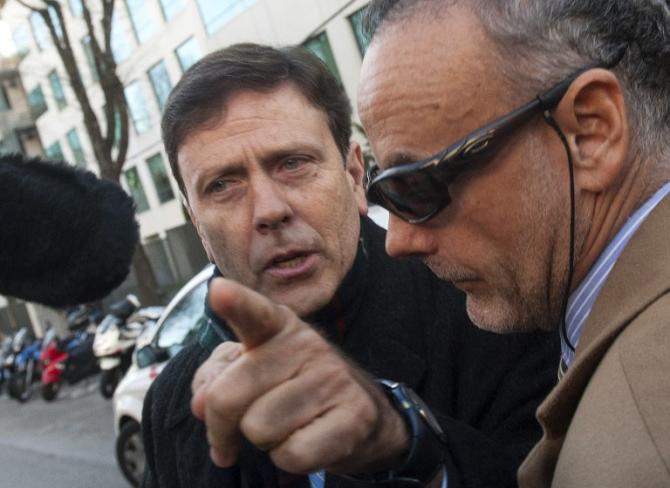Fuentes' own witness harms defence
Lack of medical authorization for Fuentes’ blood transfusions

Operación Puerto entered its sixth week today (Monday) with a declaration by one of Eufemianio Fuentes’ defence witnesses, a former deputy director of a Spanish blood bank, that the blood stored in Fuentes’ laboratory was not kept in conditions that complied with Spanish health security requirements.
Asked directly by a lawyer for the prosecution if Fuentes blood storage system fulfilled those conditions, Antonio Rico Revuelta - present at the defence’s request - stated simply: "no".
The proscution lawyer went through Spain’s laws governing transfusions point by point, laws which state clearly that transfusions can only be carried out in authorised centres and under prescription, as well as that analysis has to be carried out to determine blood groups and possible viral infections.
According to the news agency EFE, Rico Revuelta started by saying that Fuentes ‘blood bank’ had complied with medical conditions, but then ended up admitting that that was not the case for most of them.
Rico Revuelta recognised that the blood group of the donor was not checked, nor were tests carried out for infectious diseases and that there were no documents where the athletes gave a signed agreement for transfusions. He also said that he could not find anywhere in the Operacion Puerto case documenting Fuentes’s precise medical reasons for carrying out the transfusions.
Perhaps one of the few points where Fuentes practice remained unquestioned was when the question of having codes for different ‘clients’ came up. This was not a major point, Rico Revuelta said, in the conservation of the bags in themselves.
Rico Revuelta’s statement could shed an important light on the case, given that Fuentes is on trial for offences against public health - such as not keeping the blood bags in secure conditions or being authorised to do so - rather than any kind of doping offence, not considered a legal offence in Spain in 2006.
The latest race content, interviews, features, reviews and expert buying guides, direct to your inbox!
On the first day that the trial actually got underway back in late January, Fuentes said he “did physical and medical tests to guarantee their [the athletes who were his ‘clients’] health was not harmed by the rigours of competition.” This process involved blood transfusions and also - he said - acted as a guarantee that athletes, if they then fell ill in the future, would be able to have access to ‘healthy’ bags of their own blood.
Fuentes also admitted that some tranfusions took place in hotel rooms, with Tyler Hamilton later saying that Fuentes’ assistant, Alberto León - an MTBer with no medical training and who committed suicide in 2011 - had carried out one transfusion. Hamilton also claimed that a blood transfusion with blood from somebody else could have been responsible for his falling ill in the summer of 2008 and said no checks on his health status or written advice about risks. Fuentes said he sometimes used cold cans of soft drinks to keep the blood bags colder inside ‘cool bags’ when transporting them over short distances.
Earlier in the trial, Fuentes theories that an athlete could need a blood transfusion to stay healthy rather than improve performance had already been severely lambasted by an expert from Spain’s National Institute of Technology.
But more relevant, perhaps, to the final outcome of Puerto, is how well Fuentes treated the blood bags in his possession, something which became clearer today.

